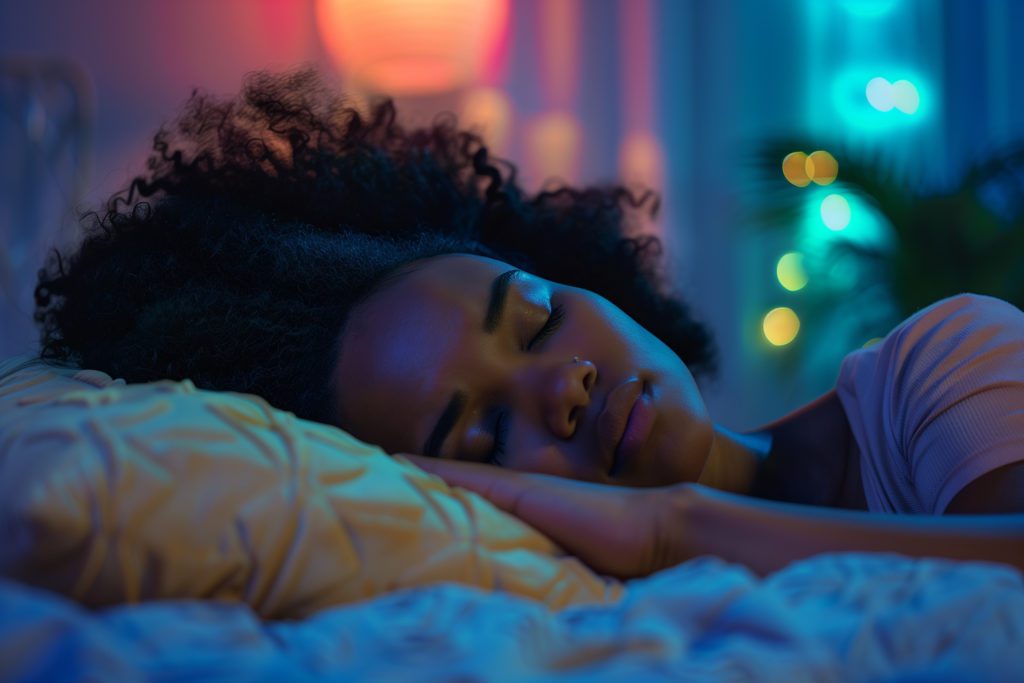
Dreams and Gender: Are There Any Differences in Dreaming Between Genders?
Explore the fascinating differences in dreaming between genders, including common themes, dream recall, and what these differences mean for sleep health.

Dreams are a common experience for everyone, but have you ever wondered if men and women have different dreams? It’s a good question to ask, and according to research, there are some differences in how men and women dream and what they dream about when they rest. If you’re ready to explore more about this exciting topic, then read on. We’ll dive into the latest insights on dreaming and the differences that exist between genders.
In this article, we’ll explore some common themes for both men and women when they dream, some of the possible explanations for why this is the case, and even more about what this could indicate for both men’s and women’s health. Let’s start with the differences between men and women when they dream, specifically in terms of how they perceive dreams, the frequency of such, and their potential dream recall.
How Men and Women Dream: A Look at Themes, Frequency, and Dream Recall
Men and women might have similar dreams at times, but research also shows that they experience different dream themes. First, women are more likely to report that they can recall their dreams than men, while men might have less dream recall, but not nearly as infrequently as children. Interestingly enough, the same study showed that women are more likely to have sleep disorders.
When it comes to dream themes, women’s dreams might relate to what you expect. Women are likely to dream about their emotions and family in the first person, meaning that they are seeing the experience happen from their own perspective rather than another person's. Women may have more realistic dreams, while men might have more control over their dreams.
On the other hand, men’s dreams differ in that they are typically about physical aggression more so than family themes and sometimes in the third person or from the perspective of someone else rather than them. Men also have more daydreams, typically of a sexual nature, among the younger populations.
It is difficult to tell what population has more frequent dreams, as people dream but often do not remember what occurred overnight. However, based on what research has shown, women are more likely to at least recall their dreams and ponder them than men. There are many studies that can explain why this is the case and why men and women dream—and remember them—so differently.
Why Do Men and Women Experience Dreams Differently?
While one might just say that men and women have unique experiences, that isn’t entirely a conclusive reason as to why men and women dream differently. The differences in dreams come down to a few factors, including our biology. Whether or not you are a male or female, here’s what research says explains some of these differences:
- Hormonal Differences: Both men and women go through puberty as teens, but arguably, women undergo more experiences with negative emotions during this time, likely causing them to need to process them through dreaming more than men.
- Men Might Be More Aggressive: While this is not the case for everyone, studies have shown that men are more likely to be aggressive than women. Additionally, men are more likely to dream about other men, which could be a sign of their desire to protect their loved ones or to compete with other men.
- Distinct Brain Structures: Although men and women may be similar in many ways, they have different brain structures. A study conducted over two decades proved that gender indicates what brain regions will be larger, which can impact their brain health, overall health, and dreaming (Source: University of Cambridge).
- Varying Social Roles: Men's and women's experiences in the world, including their social roles, might impact their dreams. For instance, women might be more likely to dream about family if they are stay-at-home moms, while men might be more likely to dream about aggression or work if they are working parents.
- Individual Disparities: As you know, no two people are the same, so there’s every reason that men and women dream differently simply because of personal factors not yet studied by researchers. It is essential to consider the uniqueness of each person’s dreaming experience, even despite gendered similarities.
With so many potential explanations regarding why men and women dream differently, what does this mean for our sleep health? Let’s look at that next!
What Gendered Differences in Dreaming Mean for Our Sleep Health
Now that you know a little bit more about dreaming and how men and women differ in this regard, you might be able to identify how it can affect sleep for both genders. For starters, we know that women are more likely to remember their dreams, but this can also indicate how it might disrupt sleep.
Men have been shown to be more likely to experience REM sleep behavior disorder and narcolepsy, while women are more likely to potentially struggle with restless leg syndrome and insomnia (Source: Neuroscience & Biobehavioral Reviews). If women suffer from intense, emotional nightmares, then this might be an explanation for insomnia, one that could help people overcome and treat the situation that is hindering their rest.
Understanding how men and women dream can help us gain a more holistic perspective on each person’s sleep health. Once you know a bit more about your unique dream themes and challenges, you can take steps to help encourage better rest.
The Next Steps: How You Can Encourage Better Rest
Now that you know a bit more about dreaming for both men and women, you likely have identified some common themes and challenges for yourself, too. We hope that you enjoyed this article and learned something new!
If you want to encourage better sleep health, don’t be afraid to use a dream journal to reflect and remember your dreams. If you struggle with a sleep disorder that you believe may or may not be tied to it, it’s always best to reach out to a medical professional for further support.

Written by
Marie Soukup
Marie Soukup is a seasoned copywriter, editor, and Integrative Nutrition Health Coach with a certificate from the Institute of Integrative Nutrition (IIN). With years of experience working with brands across diverse industries, Marie is passionate about holistic health and crafting compelling content.
Download Pillow
Get help
Press & News
Legal
Connect
X (Twitter)
Company
Copyright © Neybox Digital Ltd.



